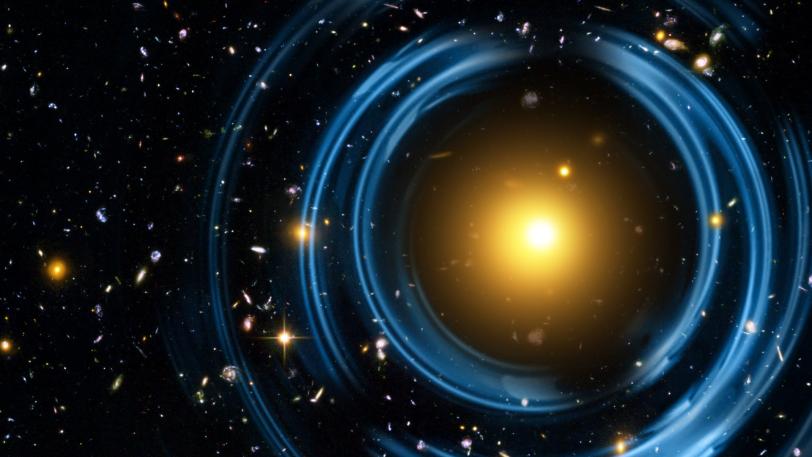One of the most surprising predictions made by Einstein's theory of relativity is that light doesn't travel through the universe in a straight line. The gravitational field of massive objects will deflect the path of light traveling past, giving some very dramatic effects. We see multiple images of quasars, galaxies smeared into arcs and circles and magnified images of the most distant objects in the universe. This talk will explain how gravitational lensing was first observed and discuss how scientists use this phenomenon to study everything from exoplanets to dark matter to the structure of the universe and the mysterious dark energy.
The Dark Universe Through Einstein's Lens
Presented by Debbie Bard
About Debbie Bard
Debbie Bard a is researcher at SLAC National Accelerator Laboratory, where she works on science preparation for the Large Synoptic Survey Telescope (LSST). A large part of Debbie's work is developing new methods of extracting information from the future LSST dataset, in order to understand the structure and evolution of our universe. While her current field of study is cosmology, Debbie started her career in particle physics, studying the difference between matter and antimatter with the BaBar experiment at SLAC. Over the course of her career Debbie moved from studying the smallest particles we know to studying the largest structures in the universe! She has always been fascinated with the most fundamental questions in physics: Where did everything come from? What's it all made of? Where's it going? Although particle physics and cosmology appear to be very different subjects, they both seek to answer the same profound questions about the universe we live in. Debbie Bard earned her master's degree in physics from the University of Nottingham in the United Kingdom, and her PhD in particle physics from the University of Edinburgh.
The Dark Universe Through Einstein's Lens
Presented by Debbie Bard

The Dark Universe Through Einstein’s Lens
Public lecture presented by Debbie Bard
SLAC National Accelerator Laboratory
Recorded on July 23, 2013